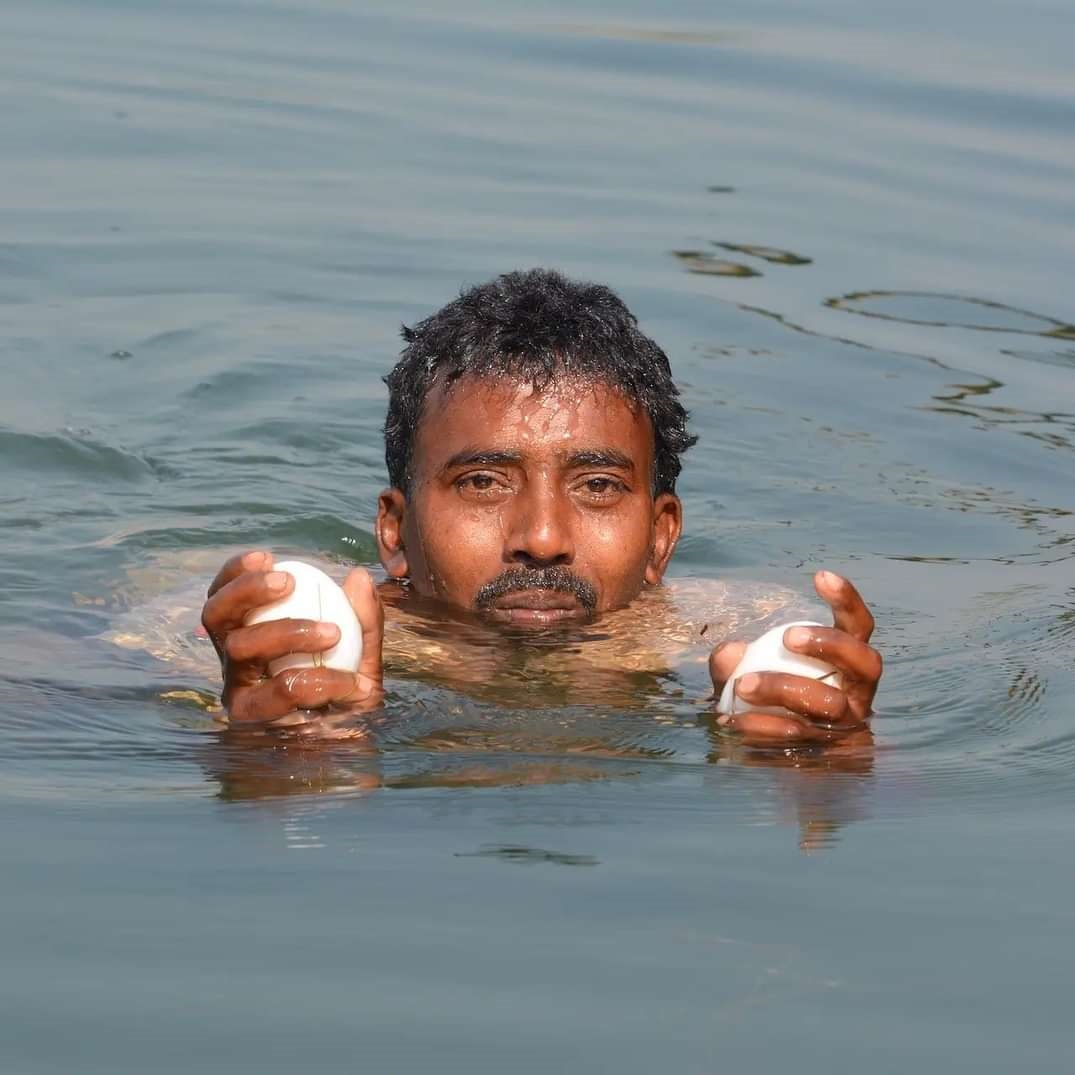‘It could be just crocodile eggs for many, but for me, it’s life worth saving’.
Geruwa River is a rivulet of the Ghaggar River passing the Katarniaghat Wildlife Sanctuary. Laxman, a daily wager working at the Gharial Rescue Centre and Hatchery of Katarniaghat Wildlife Sanctuary, saw two eggs of Gharial sinking in the river water. Without thinking about the risk to his own life, he jumped in the river to save its eggs. Laxman not only saved the eggs, but placed the same in the hatchery till two little Gharial came into existence. Laxman is now come to be known as the “Gharial Eggs Saviour”. Laxman’s acts have created quite a stir on Twitter. Many IFS officers in different states have appreciated Laxman for his wisdom and kindness.
The Sunday Guardian has been highlighting some of the “Silent Heroes” who work to protect wildlife and forests without thinking about the risks to their own lives. Laxman told The Sunday Guardian, “Serving to protect forest and wildlife is no less than the job of a soldier standing at the battle forefront trying to save the nation from enemies. Here, the enemies are prevalent in all shapes and sizes—it could be an animal and human being as well. Here, in forest service, they all work for those who are speechless, but their life matters equally.”
The water in the rivulet was 15 feet deep from where Laxman took out the eggs safely. There are many stories in the sanctuary that can give people goosebumps. Laxman’s story is one such. “Pawan Kumar Shukla is another living example of tackling man-animal conflict issues,” said Akash Badhawan, Divisional Forest Officer, Katarniaghat Wildlife Sanctuary.
Badhawan, while speaking to The Sunday Guardian, narrated about Pawan Kumar Shukla, who is a forester posted at the Katarniaghat Range of the Katarniaghat Wildlife Sanctuary. Shukla is one of the most dedicated “green soldiers” one has ever heard of. His commitment towards protecting animals knows no bounds, to the point that he still patrols the same forest to protect the animals where he was attacked by a leopard twice. It was in April 2006.
Shukla was a forest guard then and was in the same Katarniaghat Range. A leopard had been attacking cattle and there were man-animal conflict issues in Anandnagar village. The villagers had managed to corner and trap the leopard in the bush and later capture it somehow and tie it with bamboos! As soon as he heard the news, he reached the site and tried to move the mob away from the site around the already angry leopard. The leopard managed to set itself free and bit Pawan on his right foot and dug its canines in.
The leopard clawed his thigh as well and when the villagers ran away, the leopard on finding a passage, fled away. Pawan was admitted to a community health care centre and was treated. He took a day’s leave and the second day was back to his patrolling camp. He kept taking his medicines and tended to his wounds for a week and the next week, was back to his regular patrolling, though he was a little slow and had a limp.
“14 years later, in 2020, when he was posted in Sujauli Range of Katarniaghat Wildlife Sanctuary, there was another issue of man-animal conflict in Bhainsabudhana village and Pawan went to manage the mob again where the leopard had entered a house and the forest staff had put a cage and a net around the house to capture the leopard. During this rescue, the leopard managed to flee from the house and bit Pawan on his left thigh this time; thankfully, not very seriously this time. With just a routine dressing at the local Community Health Centre, Pawan resumed his duties the same day as if nothing had happened,” said Badhawan.
For a normal person, the mental trauma left after such an incident is a lot to handle, leave alone the physical injuries caused. One would think twice before entering the forests again after such an incident. However, even today, he works in the same forests with the same zeal and conviction towards protecting the wild animals.

